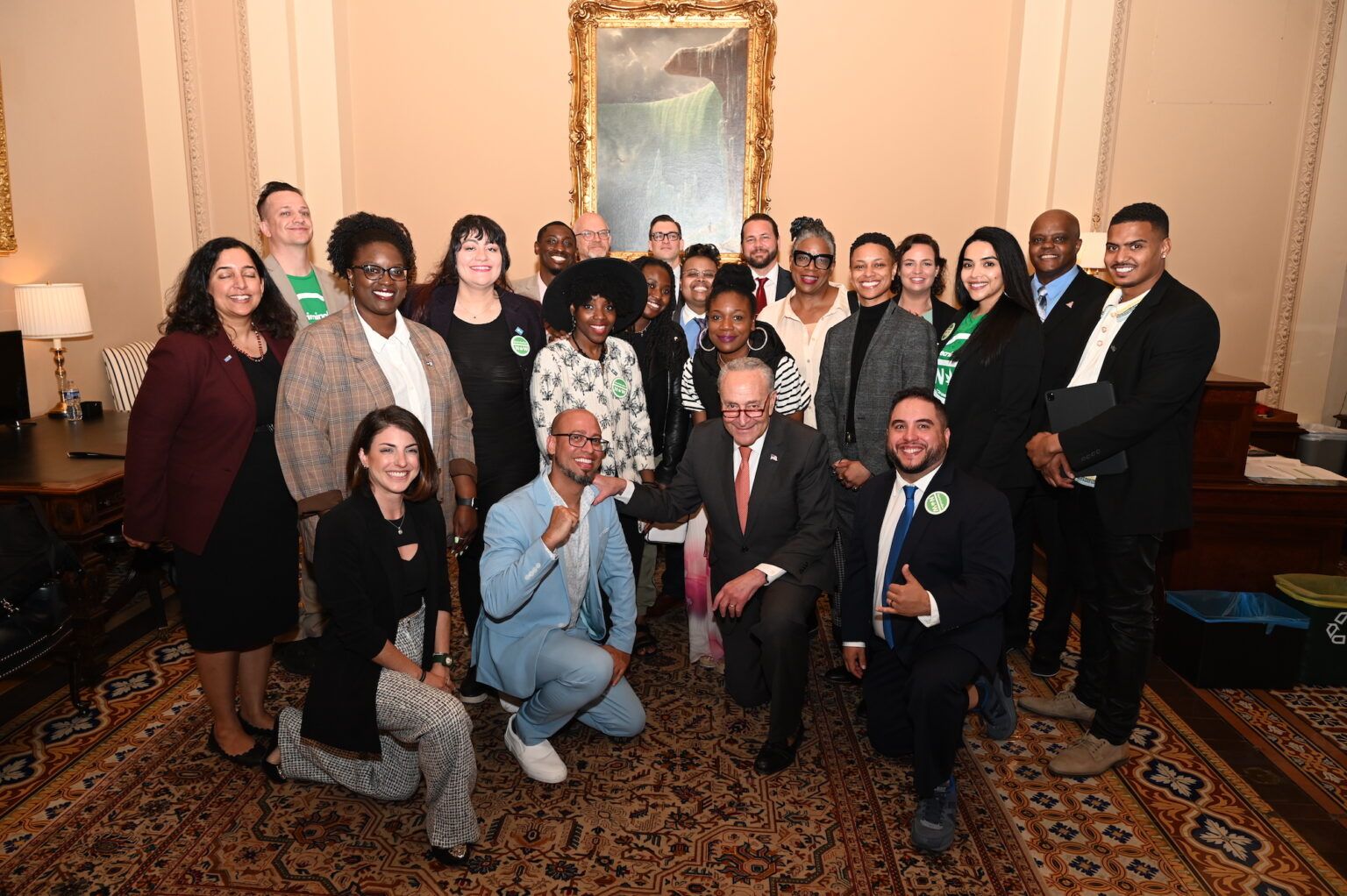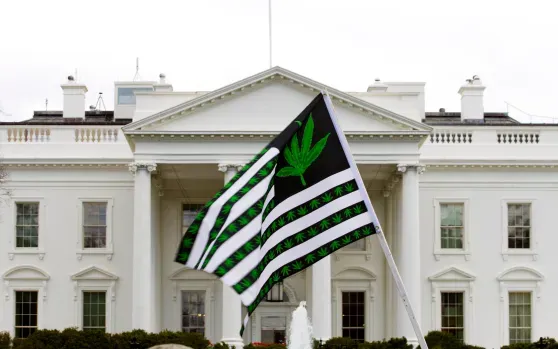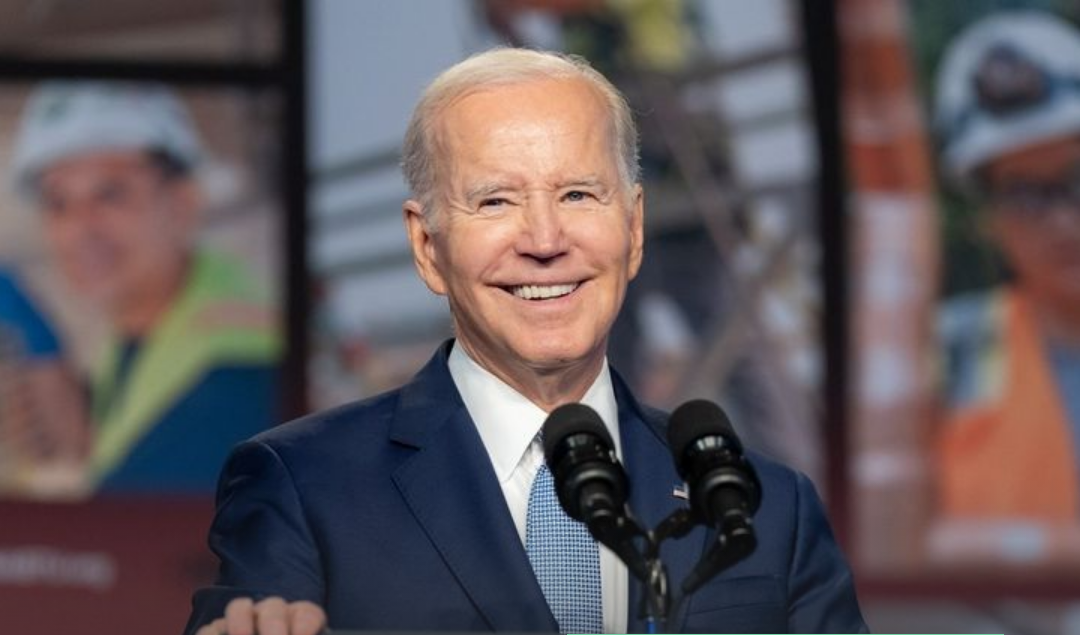Just Cannabis Ep. 4 — Through A Daughter’s Eyes ft. Richeda Ashmeade
In Episode 4 of Just Cannabis, host Mikelina Belaineh interviews Richeda Ashmeade, a law student and poet whose father was sentenced to 22 years in federal prison for a nonviolent cannabis crime. In this conversation, Richeda details the ways her father’s cannabis incarceration has rippled through the lives of her family and community and shares how she’s found healing through advocacy and art.
…
Richeda’s father, Ricardo Ashmeade, was incarcerated when she was just 12 years old. She started our conversation by describing the fond memories they have together, explaining how her dad is and always has been her best friend. Richeda is named after her father, and apparently, before she was born Ricardo (accurately) predicted that the two of them would share a deep connection. In the episode, Richeda recalls that their bond was so strong that even incarceration could not divide them. When Richeda was younger, it was Ricardo that would take Richeda shopping for new outfits and treat her to getting her hair and nails done. Ricardo would even sit alongside her, sharing in these self-care rituals.
Ricardo is currently serving a 262-month sentence for a victimless cannabis offense. Charged and convicted of cannabis conspiracy, Ricardo’s lengthy sentence is the unjust outcome of a three-strikes mandatory minimum. Three strikes laws can vary slightly in tone and tenor depending on the jurisdiction, but on both the federal and state level, they generally stipulate that if an individual has two prior felony convictions, upon the third conviction they are automatically sentenced to a lengthier sentence—or all-too-often, mandatory life imprisonment.
These three-strikes laws are a legacy of the 1980s and 1990s era “War on Drugs.” In the early ’90s, notions of “Black criminality” overwhelmed the airwaves, screens, and minds of citizens and policymakers. This resulted in
The Violent Crime Control and Law Enforcement Act of 1994, commonly known as the “94 Crime Bill.” This legislation created powerful funding incentives (billions of dollars) that encouraged states to invest in more policing and incarceration. The federal government basically said, “Hey states, you’re eligible for these multimillion-dollar grants if you pass these excessively punitive laws, criminalize drug use, put more officers in the streets, and build more jails and prisons.”
When Ricardo was charged, it had been 14 years and 11 months since his previous cannabis offense. Had he been charged only a few days later, the three-strikes law wouldn’t have applied to his case. It’s clear the prosecution was primed for maximal punishment from the start. The government took Ricardo from his life and family for being associated with individuals who sold cannabis. If Ricardo had accepted the plea deal the prosecution had tried to push on him, he would have been home years ago. However, he took his case to trial—and was punished with a substantially longer sentence because of it. Ricardo’s story is a clear demonstration of how our criminal legal system is designed to pursue punishment for punishment’s sake, independent of justice or public safety considerations.
Today, Richeda is Ricardo’s champion on the outside.
Richeda was exposed to a new world of possibilities when she went to college and started learning more about the impact of legal and legislative advocacy. Still overwhelmed by the injustice of her father’s incarceration, Richeda found hope and healing through organizing. She didn’t know how to help her dad, so she reclaimed her power by dedicating herself to helping others. Richeda’s advocacy saw her organize and campaign for
Proposition 64, the bill that legalized adult-use cannabis in California. Following Prop 64’s passage, Richeda and Ricardo worked together to get his felony reclassified to a misdemeanor—and hope once again seemed possible. However, despite this reclassification, the federal courts refused to re-sentence Ricardo accordingly. He now sits in prison, serving out an almost 22-year sentence for a
non-violent
misdemeanor cannabis offense
Even though her father wasn’t re-sentenced and released under Prop 64, Richeda found new seeds of hope when she saw the ways in which the law could potentially help her dad. This small win fortified her in her mission. With the encouragement of her father, she applied and gained admittance to law school, l where she currently working to acquire the skills and knowledge that will aid her in her fight for justice.
Throughout the interview, Richeda details her experience as a daughter of an incarcerated father, reminding us that the impact of the “War on Cannabis” reaches far past the individual bodies kept behind bars. When our criminal legal system incarcerates someone, we are caging individuals who belong to partners, families, and communities. The choice to punish changes the lives of everyone who loves that person, catalyzing a series of traumas that are far-reaching and long-lasting. Richeda explains how her mom, her sisters, and her grandma are all suffering—collateral damage in the government's war on cannabis. Yet, this experience remains unseen, unnamed, and uncounted—a gap wanting for attention and healing.
At the beginning of her father’s incarceration, Richeda struggled to talk about it– the pain was just too much. It was her father’s consistent and brave modeling of vulnerability that helped guide her from the darkness of shame to the light of truth. Her father showed her how tears can cleanse, and what power can be found in bold vulnerability. Richeda realized she had to let herself feel the hurt of injustice in order to heal, and that she needed to heal in order to help her dad’s cause. Richeda’s story, intertwined with her father’s, is no anomaly. It is a story all too familiar for far too many. Richeda asserts that making space for womxyn in cannabis justice is not about a hierarchy of harm, but rather about making space for the whole truth. Richeda has found healing through her art and advocacy, using her voice as a spoken word artist, and as a leader in the cannabis justice movement. Richeda and Ricardo’s story reminds us that healing is a critical and necessary part of advocacy and that our stories are part of our power.
You can help support Richeda’s advocacy by signing Ricardo’s clemency petition
here.
[1] https://casetext.com/case/robinson-v-united-states-526#N196622



The Last Prisoner Project. All rights reserved.
Last Prisoner Project is a 501(c)(3) tax-exempt organization with EIN 83-4502829. Mailing address: 1312 17th St #640 Denver, CO 80202. Our governing documents and conflicts of interest policy can be found here. Our Privacy Policy can be found here.
Website built on KUSHY



